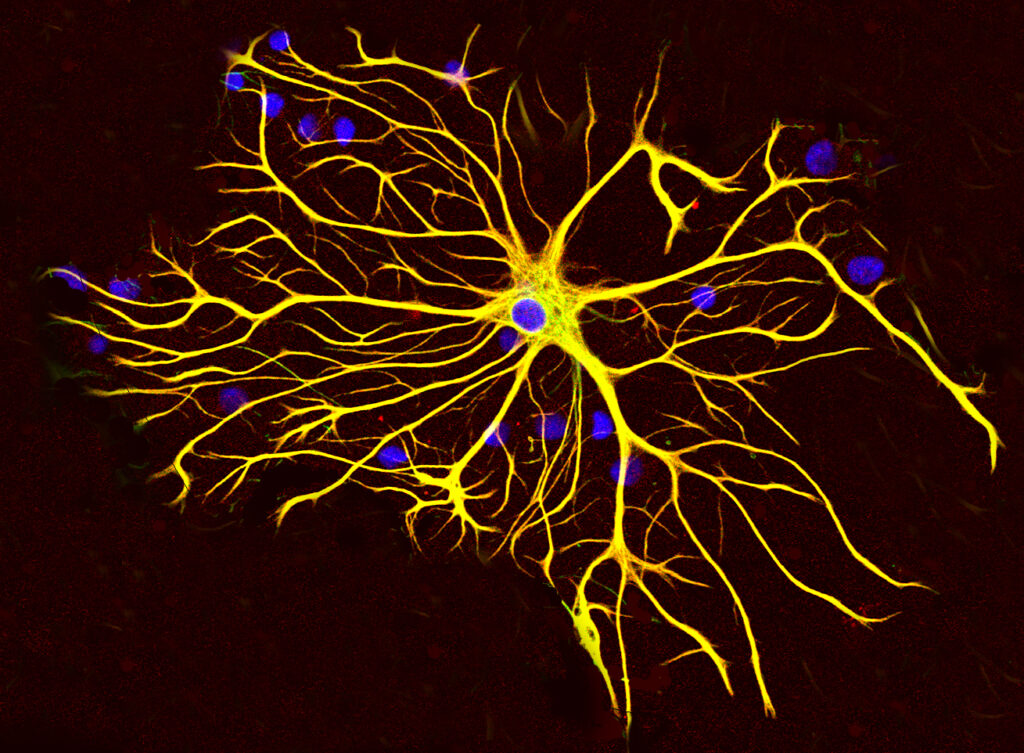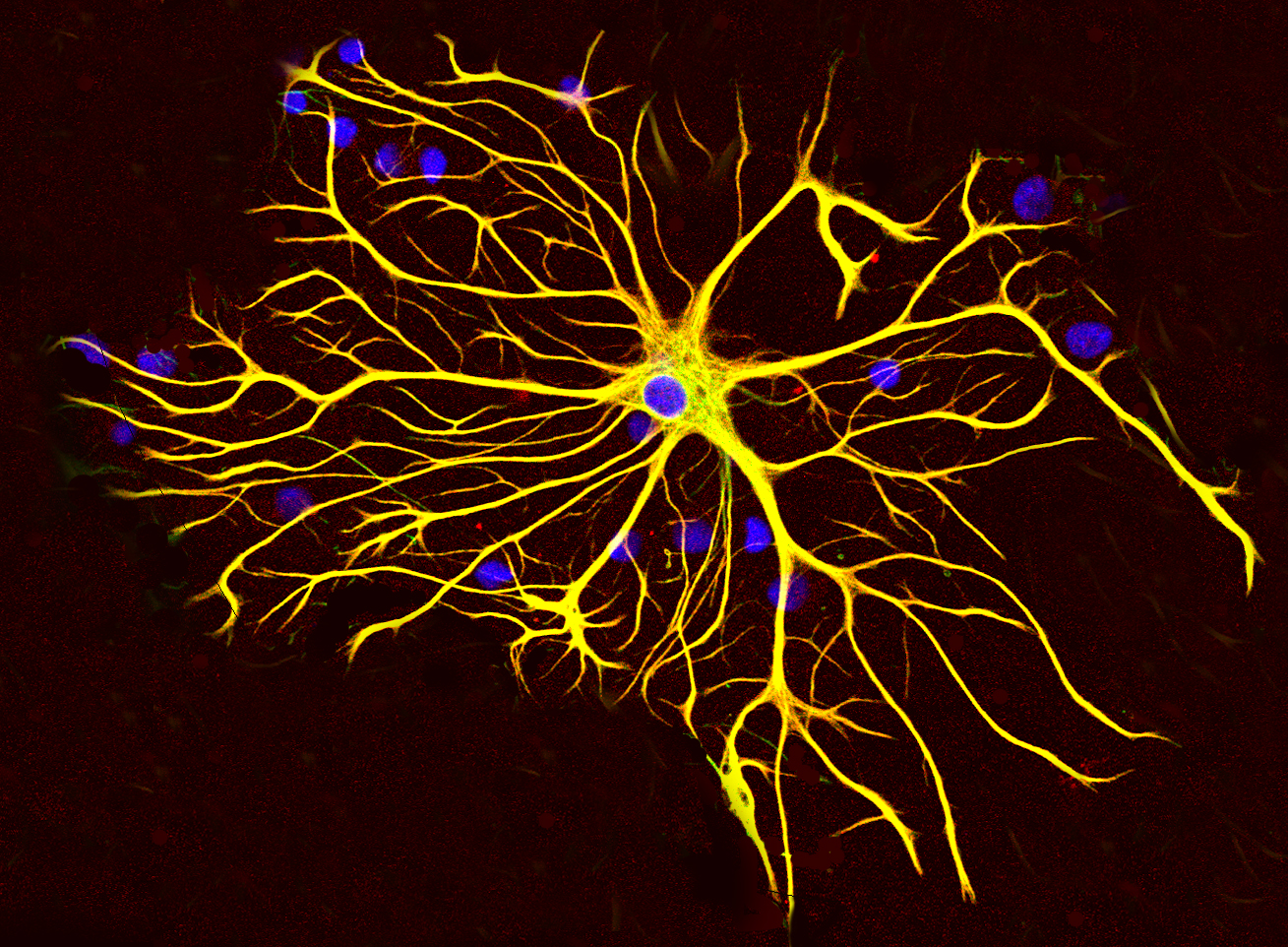A groundbreaking study conducted by researchers at the University of California, Riverside (UCR), has discovered that astrocytes, a type of glial cell in the brain, play a crucial role in regulating the progression of Alzheimer’s disease. The findings, published in the journal Nature Communications, could open up new avenues for developing therapeutic strategies to combat the neurodegenerative disorder.
Alzheimer’s disease, the most common cause of dementia, is characterized by the accumulation of amyloid-beta plaques and the formation of neurofibrillary tangles in the brain. These pathological hallmarks lead to the death of neurons and the progressive decline in cognitive function. Astrocytes, which make up nearly 50% of the human brain cells, were previously thought to have a supportive role in maintaining brain health. However, their precise role in Alzheimer’s disease had not been well understood.
The UCR research team used a novel approach called “astrocyte-specific gene profiling” to investigate the role of astrocytes in Alzheimer’s disease. They found that the activation of astrocytes contributes significantly to the progression of the disease. The researchers observed that reactive astrocytes, which are activated in response to amyloid-beta plaque accumulation, release pro-inflammatory molecules that cause further damage to neurons.
Interestingly, the study also identified a specific astrocyte subtype, called the A1 astrocyte, which plays a key role in regulating the disease. The researchers found that blocking the activation of A1 astrocytes in a mouse model of Alzheimer’s disease significantly reduced the severity of the disease and improved cognitive function. This suggests that targeting A1 astrocytes could be a promising strategy for treating Alzheimer’s disease.
Moreover, the research team discovered that a protein called lipocalin-2 (LCN2) is highly expressed in reactive astrocytes and is involved in the activation of A1 astrocytes. By blocking LCN2 in the mouse model, they were able to prevent the activation of A1 astrocytes and mitigate the progression of Alzheimer’s disease. This finding highlights LCN2 as a potential therapeutic target for future Alzheimer’s disease treatments.
In summary, this game-changing study reveals that astrocytes, particularly the A1 subtype, play a significant role in regulating the progression of Alzheimer’s disease. By targeting these cells and the LCN2 protein, researchers may be able to develop new therapeutic strategies to slow down or even halt the progression of this devastating neurodegenerative disorder.




